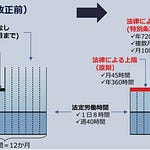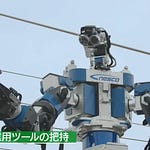Japan's "高度人材" (Kōdo Jinzai), or Highly Skilled Professional (HSP), system is a cornerstone of its initiative to attract global talent. This guide is essential for foreign professionals considering a career in Japan and for Japanese companies seeking to boost their global competitiveness by recruiting top international experts.
What is the Highly Skilled Professional (HSP) System?
The HSP system is a preferential immigration program designed to attract foreign nationals with advanced, specialized skills. Officially introduced in 2012, the system uses a points-based evaluation to identify "highly skilled" individuals and grant them a special status of residence with significant benefits.
The primary goal is to encourage these professionals to build long-term careers in Japan, thereby contributing to the nation's economic growth and innovation. The program is a strategic policy to address challenges like an aging population and to bolster Japan's position in the global economy. The preferential treatment offered, such as accelerated permanent residency, makes Japan a more compelling destination in the international competition for talent.
Categories of the HSP Visa
The HSP visa is divided into two main categories:
Highly Skilled Professional (i) - HSP (i): This is the initial visa granted to those who score 70 or more points on the evaluation. It is issued for a uniform 5-year period, providing more stability than most standard work visas. Activities under HSP (i) are classified into three types:
(A) Advanced Academic Research Activities: For researchers and academics working at Japanese institutions.
(B) Advanced Specialized/Technical Activities: For professionals with specialized knowledge in science or humanities, such as engineers, IT specialists, and international lawyers.
(C) Advanced Business Management Activities: For executives and managers involved in business administration or management.
Highly Skilled Professional (ii) - HSP (ii): After working for at least three years under an HSP (i) visa, individuals can apply for the HSP (ii) status. The key benefit of HSP (ii) is an indefinite period of stay, eliminating the need for future visa renewals and offering a stable, long-term residency.
This two-tiered system provides a clear pathway from a stable 5-year visa to a more permanent status, incentivizing long-term commitment to Japan.
The "J-Skip" Visa: An Elite Fast-Track
Introduced in April 2023, the "Japan System for Special Highly Skilled Professionals" (J-Skip) is an expedited route for top-tier professionals. It allows individuals who meet exceptionally high benchmarks for income and experience to bypass the detailed points calculation.
Those who qualify for J-Skip are granted the HSP (i) status and its associated benefits.
J-Skip Eligibility:
For Researchers/Engineers (Type A & B):
A Master's degree or higher AND an annual income of at least JPY 20 million.
OR at least 10 years of relevant work experience AND an annual income of at least JPY 20 million.
For Business Managers (Type C):
At least 5 years of business management experience AND an annual income of at least JPY 40 million.
J-Skip acknowledges that high income and extensive experience are direct indicators of "highly skilled" status, reducing administrative hurdles for proven top performers.
Navigating the HSP and J-Skip Visas
The HSP Points-Based System Explained
The HSP (i) visa requires a score of 70 points or more. Points are awarded across categories like academic background, professional experience, annual salary, age, and Japanese language ability.
1. Key Point Categories
Academic Background: Points are given for degrees, with a Doctorate (30 points) and Master's (20-25 points) valued more highly than a Bachelor's (10 points).
Professional Experience: More years of relevant work experience earn more points (e.g., 10+ years can earn 20-25 points). All claimed experience must be officially documented.
Annual Salary: This is heavily weighted. A higher salary earns more points (e.g., JPY 10 million+ can earn 40 points). A minimum annual income of JPY 3 million is generally required for the Specialized/Technical and Business Management categories.
Age: Younger applicants receive bonus points, reflecting a longer potential contribution period (e.g., applicants under 30 can receive 15 points).
Japanese Language Proficiency: Passing the JLPT N1 (15 points) or N2 (10 points) provides a significant advantage.
2. Point Thresholds: 70 & 80+ Points
70 Points: This is the minimum score required to qualify for the HSP (i) visa and its benefits.
80+ Points: Achieving 80 or more points unlocks elite-tier advantages, most notably the ability to apply for permanent residency after just one year.
Prospective applicants should use the official point calculation tables from the Immigration Services Agency of Japan to self-assess their score.
3. Bonus Points
Applicants can earn crucial bonus points for specific qualifications, such as:
Graduating from a top-ranked global university or any Japanese university (+10 points).
Holding multiple Master's or Doctoral degrees (+5 points).
Having significant research achievements, like patents or published papers (+15-25 points).
Working for an innovative SME that invests heavily in R&D (+10 points).
Benefits of the HSP Visa
Securing an HSP visa provides a suite of preferential treatments designed to create a stable and attractive environment for professionals and their families.
Extended Stay and Path to HSP (ii): The HSP (i) visa comes with a 5-year period of stay. After three years, you can apply for the HSP (ii) visa, which grants an indefinite period of stay.
Accelerated Permanent Residency: This is the most compelling benefit.
70-79 Points: Apply for Permanent Residency (PR) after 3 years.
80+ Points: Apply for PR after just 1 year. This is a dramatic reduction from the standard 10-year residency requirement.
Expanded Work Rights for Spouses: Spouses of HSP holders can work full-time in a wide range of professional roles without needing to meet the strict requirements of a separate work visa.
Bringing Parents and Domestic Helpers: Under certain conditions (related to childcare needs and household income), HSP holders can sponsor visas for their parents and foreign domestic helpers—a rare provision in Japan's immigration system. J-Skip offers even more generous provisions, allowing up to two domestic helpers for high-income households.
Flexibility and Priority Processing: HSP holders can engage in a wider range of activities, including managing a business related to their main field. Furthermore, their visa applications receive priority, expedited processing, often taking only a few weeks instead of months.
Application Process and Required Documentation
The process typically involves the Japanese employer applying for a Certificate of Eligibility (CoE). Once issued, the applicant uses the CoE to apply for the HSP visa at a Japanese embassy or consulate.
Essential Documents Include:
A completed Point Calculation Sheet (for the points-based route).
Comprehensive documentation to prove every point claimed, such as:
Academic diplomas and transcripts.
Detailed employment verification letters.
Official salary and tax statements.
Language proficiency certificates (JLPT, etc.).
Evidence of research achievements or other bonus points.
For J-Skip, documents proving the required income and experience benchmarks.
Meticulous preparation is critical, as any discrepancy can cause delays or rejection.
Comparing HSP with a Standard Work Visa
FeatureHighly Skilled Professional (i) VisaStandard Work Visa (e.g., Engineer/Specialist)
Primary Eligibility: 70+ points based on skills, salary, etc.Relevant degree or work experience for the job.
Initial Duration: Uniformly 5 years.Variable (often 1, 3, or 5 years).
Path to Permanent Residency: 1 year (80+ pts) or 3 years (70+ pts). Typically, 10 years.
Spouse's Work Rights: Broad, full-time work permitted.Limited (e.g., part-time with permission).
Bringing Parents/Helpers: Permitted under specific conditions. Generally not permitted.
Job Change Flexibility: Tied to the sponsoring employer; requires re-application.More flexible; requires only notification.
Application Complexity: Higher; requires extensive documentation for points. Lower standard documentation.
Export to Sheets
While the HSP (i) visa offers superior long-term benefits, it is tied to a specific employer. A job change requires a new application. This restriction is lifted with the HSP (ii) status, which offers much greater employment freedom.
For Japanese Companies: A Strategic Advantage
Leveraging the HSP System for Talent
For Japanese companies, the HSP system is a strategic tool for talent acquisition. Hiring highly skilled professionals can:
Fill Critical Skill Gaps: Access specialized knowledge in fields like technology, R&D, and international business.
Foster Innovation: Infuse new ideas and global best practices to enhance competitiveness.
Improve Global Capabilities: Boost language skills, cultural diversity, and understanding of overseas markets.
Facilitate Overseas Expansion: Utilize the networks and expertise of international professionals.
Company Sponsorship Responsibilities
Sponsoring an HSP or J-Skip visa involves significant legal and administrative duties:
Legitimate Sponsorship: The company must be a legally registered and stable entity in Japan and must apply for the Certificate of Eligibility (CoE).
Job Relevance: The offered position must genuinely require advanced skills and meet any minimum salary thresholds.
Compliance: The company must adhere to all Japanese labor, tax, and immigration laws, ensuring equal treatment for foreign employees.
Accurate Documentation: Provide complete and consistent information to immigration authorities.
Notification: Notify the public employment office (Hello Work) upon hiring a foreign national.
Engaging an immigration specialist can be valuable for companies unfamiliar with the process.
Key Considerations and Future Outlook
Maintaining Status and Transitioning to PR
Obtaining an HSP visa or PR is not the final step.
Maintaining HSP Status: An HSP (i) visa is tied to the sponsoring employer. A job change requires a new application. Even with an HSP (ii) visa (indefinite stay), a long period of unemployment could jeopardize the status.
Transitioning to Permanent Residency: In addition to meeting the points and residency duration, PR applicants must demonstrate:
Good Conduct: A clean legal and immigration record.
Financial Stability: A stable and sufficient income.
Contribution to Japan: Consistent and timely payment of all taxes and social insurance (pension, health insurance). This is a critical factor.
Future Changes to the System
Japan's immigration policies are dynamic. The introduction of the J-Skip and J-Find visas in 2023 shows the government's willingness to adapt and refine its talent attraction strategies. Future changes may include further adjustments to the points system to target specific industries or new pathways to attract talent. Therefore, it is crucial to always refer to the latest official information from the Immigration Services Agency of Japan.
Conclusion
Japan's Highly Skilled Professional system is a clear and advantageous pathway for talented individuals seeking to build a career and life in Japan. For professionals, it offers unparalleled stability, family support, and an accelerated route to permanent residency. For companies, it is a strategic gateway to securing the global talent needed to innovate and thrive.
Success in navigating this system requires diligence, thorough preparation, and a commitment to staying informed. For those who qualify, the HSP framework provides a structured and rewarding journey to becoming a valued member of Japan's professional landscape.
If you are interested in working in Japan, visit our official site here: https://helloworldjapan.com/ultimate-guide-to-the-highly-skilled-professionalhsp-visa-in-japan-in-2025/
Appendix: Useful Resources and Official Links
For the most current information, always consult official government sources:
Immigration Services Agency of Japan (ISAJ): The primary source for all visa information, application forms, and the official Point Calculation Tables.
Ministry of Justice (MOJ): Oversees the ISAJ.
Ministry of Foreign Affairs of Japan (MOFA): Provides information on visa application procedures from outside Japan.














Share this post